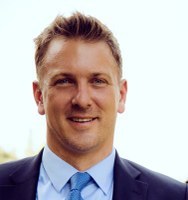Being a teenager is difficult for anybody, but it’s especially hard for people who deal with bullying, social aggression and substance use. Associate Professor Robert Faris, an expert in social conflict, wants to know how these issues spread through the social networks of teenagers in and out of school.

Understanding conflict, Faris said, is the key to creating effective anti-bullying programs and support systems that can limit the risks of mental health issues it can cause. “I think everybody’s probably, on some level, interested in conflict and understanding why it happens, what determines who emerges successful or victorious from conflict, its implications for people,” he said.
CNN Collaborator
Faris was happily surprised at the attention his study got. “It was surreal,” he said. “I thought it [the paper] might get a little attention because of popular interest in bullying, but I never imagined that I’d be sitting next to Dr. Phil and Anderson Cooper on national TV.”
His research was featured on CNN again in 2015 on the Emmy-winning “#Being13: Inside the Secret World of Teens.” He and University of Texas at Dallas psychologist Marion Underwood studied social media messages from teenagers. They found that social media caused high levels of dependence, aggression, and stress, as kids feared “missing out” on something online, being excluded, or not getting enough likes and followers.
“[The special] is already changing the national conversation about how social media impacts the lives of young people and about kids’ complex and oftentimes disturbing lives online,” Vicki Smith, then-chair of the UC Davis Department of Sociology, told The Aggie in 2015.
Faris feels lucky that his research is making an impact on people’s lives. He recently visited Tel Aviv, Israel, where he met with Israel’s largest non-governmental organization in the education field, which designed an anti-bullying intervention program based on his findings.
Faris is currently working on projects involving social networks and teen substance abuse, turnover in adolescent friendships, and bystander intervention in bullying.
Carrying on a Legacy in Sociology
Sociology is ingrained in Faris’ DNA. He follows in the footsteps of his great-grandfather, grandfather, and father; the latter two both served as president of the American Sociological Association. “I’m almost certainly the world’s only fourth generation sociologist,” he said, “the field just isn’t old enough or lucrative enough for there to be more generations.”
But it was the opportunity for interdisciplinary research, rather than family legacy, that drew him to sociology. He liked being able to do work that overlapped with fields like political science, psychology, economics and anthropology. “It allows you to maintain a real breadth of interest,” he said.
Trailblazing Professor
The heart of his work lies in social networks, which has made him a valuable collaborator on a wide variety of projects in several different fields. He is an affiliate of the UC Davis computer science department and is a member of its graduate group and has participated in various studies of Twitter data in the department. He has also worked with biologists who study the social networks of macaques, coral and algae networks. “[This] only happens at a research university, where you have that kind of rich intellectual diversity,” he said.
Faris joined UC Davis in 2007 after attending graduate school at the University of North Carolina at Chapel Hill. He knew Davis was a good fit when he interviewed for the position. “I barely got back home when they called and they offered me the job and I couldn’t wait to say yes.”
In 2015, he was named a UC Davis Chancellor's Fellow, an honor for rising stars in their fields. "Professor Faris has become a national go-to scholar for anyone who wants to learn about or is researching bullying," Ron Mangun, then-dean of the former Division of Social Sciences, wrote in nominating him. "Part of the power of his work is that he also is a brilliant methodologist." Other colleagues, in fields as diverse as public health and computer science, also used the word “brilliant” in describing Faris' research combining sociological theories with surveys and other large databases.
When he’s not working, Faris takes care of his young daughter and loves to travel, with a personal goal of visiting a new country every year. He is also an avid outdoorsman who enjoys fishing and hunting for the meat more than the sport. He feels it’s more humane than eating factory-farmed animals. His office, which is decorated with taxidermy, animal skulls, and foreign art, makes his hobbies obvious.
Faris teaches two undergraduate classes—"Self and Society: Introduction to Social Psychology" (SOC 2) and "Deviation and Society" (SOC 120)—plus seminars on adolescents and total institutions, the latter of which culminates in a field trip to a state penitentiary. He also teaches graduate seminars (SOC 295) about social networks, social psychology, and violence.
He especially enjoys talking with students on a one-on-one basis during office hours. “I think more students should do that,” he said. “I think some people feel like they’ve learned a lot more in their professors’ offices than they did in the classroom. It’s rewarding for both parties.”
— Noah Pflueger-Peters (B.A., English, ’17)
